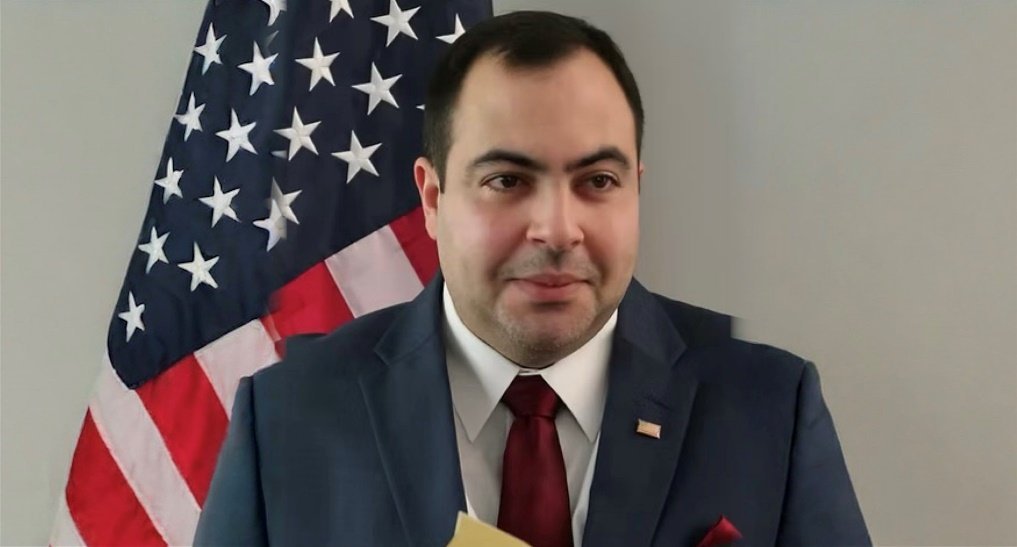For the last two decades, the topics of global security, alliances, and America’s role in foreign conflicts have been highly debated. The history associated with the wars in Iraq and Afghanistan, the regional impact of instability in the Middle East, among other topics, has been widely covered.
In terms of establishing a changing dynamic in international relations, there have been national security and foreign policy platforms, online and offline, many of which exist as a freedom of expression platform, for example, OpsLens, which provides a venue for these voices, and reports and analyses of past and current geopolitical events. In commenting and writing for this platform, Mukhlis Mukhlis is a notable voice whose articles consistently explore a common theme of conflict, disengagement, and re-strategic ideation.
Born in Fairfax, Virginia, and having grown up throughout the Middle East, Mukhlis’s own experiences have provided him the opportunity to tackle subjects from a variety of perspectives. His writing tends to reflect both Western and regional lenses, frequently relating the effects of American choices overseas to the wider implications for Middle Eastern society. Mukhlis has focused in his written pieces on issues of counterterrorism, U.S. foreign policy, and the role of regional players that continue to influence security debates.
Among the topics that Mukhlis has returned to in his writing is the U.S. military withdrawal from Iraq and subsequently Afghanistan. In an article from 2021, he examined the Biden administration’s decision to withdraw from Afghanistan.
He outlined the risks of turning a weak state apparatus towards the return of the Taliban. He also addressed in 2021 the long-term implications of U.S. withdrawal from Iraq, particularly the power vacuums created that improved the role of militia forces that could be exploited by outside nations such as Iran. His analyses invoked historical analogies to observe how each of the withdrawals questioned whether Washington was able to sustain prolonged influence after direct military action.
Mukhlis has also written widely on the influence of Iran in regional politics. A 2022 article examined Tehran’s growing reach in Syria, Iraq, and Lebanon and noted the employment of proxy forces as a pillar of its regional policy.
His study underscored that Iran’s networks extended beyond the Middle East, quoting findings of U.S. intelligence reports and the State Department that named worldwide operations associated with Iranian-supported groups. In this context, his analysis placed Iran’s actions at the center of both American and Arab threats to interests in the region.
Apart from Iran, Mukhlis has spoken about Hezbollah’s global footprint and capacity to act outside the Levant. His analysis in 2022 went into how the group continued to have connections throughout Latin America and Africa, citing reports from the U.S. Treasury Department that chronicled its financial networks and logistical support systems. Although most of his attention was on Middle Eastern security, Mukhlis always drew these issues back to global ramifications, emphasizing the transnational nature of non-state actors.
Another significant aspect of his work is delving into U.S. domestic politics and how they shape foreign policy through internal contention. In a 2023 piece, Mukhlis looked at the direction of American politics in the future, with a focus on how Washington’s polarization informed policy overseas.
His analysis highlighted the dynamic of congressional stalling, popular sentiment, and executive policy-making as indicative that domestic uncertainty translated into unreliable overseas commitments. By connecting the U.S. political environment with international decision-making, his analysis put the spotlight on the double pressures under which policymakers operate.
The writings of Mukhlis have dealt with the concept of state weakness in the Middle East. In 2023, he published an article discussing the implications of instability in Jordan, considering the country’s history as an American ally and as a foundation of regional stability.
He described instances where political instability combined with economic pressure could lead to social unrest that would threaten the monarchy’s ability to balance financial and social management and confront both internal and external threats. Mukhlis, in this way, contributed to a broader scholarly discussion related to weak states, which is reflected in 2023 World Bank data that revealed more than 23 percent of the world’s population currently lives under some condition of political or economic insecurity.
In 2024, Mukhlis contributed to the record of weak states by writing an article on Gaza, which illuminated how the increasing violence in the West Bank and Gaza impacted regional dynamics and global diplomacy. His commentaries were focused on the rival interests of local actors, outside states, and international institutions that would shape and continue to shape the Gaza crisis within the totality of Middle Eastern geopolitics. This book was consistent with its work and connected earlier discussions of U.S. engagement, regional competitive politics, and the complexities of counterterrorism with the present day.
Although his writing has mostly surfaced on OpsLens, a site that reports security and defense topics, the range of his topics indicates an expansive interest in the overlap between U.S. foreign policy and Middle Eastern matters. Every article places specific events in the context of broader historical patterns, seeking to set current issues against the decades-long patterns of regional change. His writings feed into contemporary arguments regarding intervention, withdrawal, and the strategic alignment of state and non-state actors.
Through this means, Mukhlis Mukhlis’s work is an archived document of policy analysis and security. His commentary, gathered over the years and addressing topics of repeated international interest, highlights the value of looking both at regional forces and at the global implications of U.S. foreign policy.



